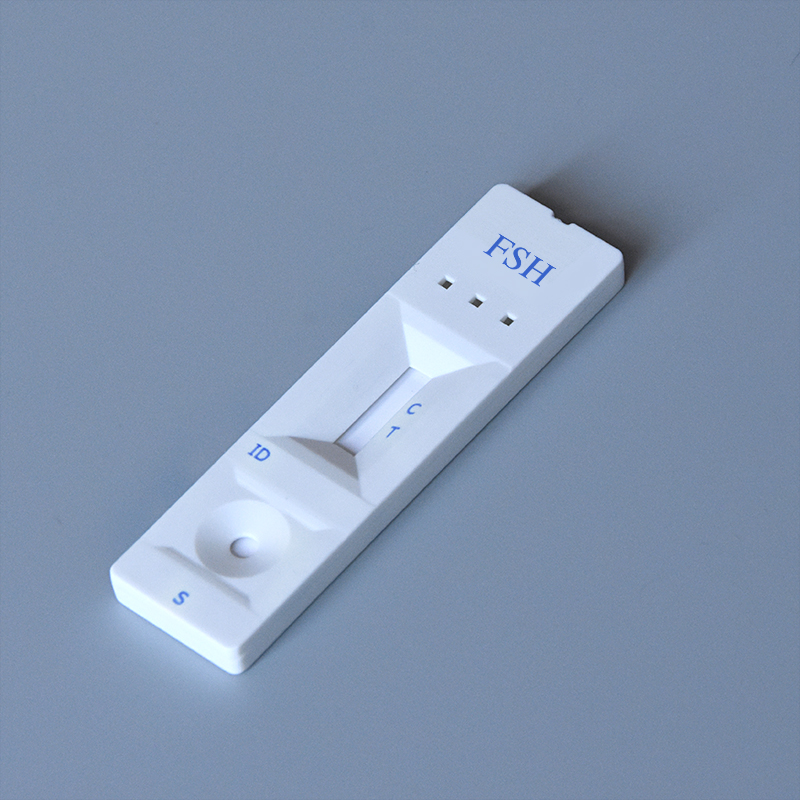Aug . 13, 2024 18:00 Back to list
Understanding the Functionality and Accuracy of Urine HCG Pregnancy Test Strips for Home Use
Understanding Urine hCG Pregnancy Test Strips
Pregnancy tests have become an essential tool for many women who suspect they might be pregnant. One of the most common and accessible methods for testing pregnancy is the urine hCG pregnancy test strip. This article will explore what these tests are, how they work, their accuracy, and the factors that can influence results.
What is hCG?
Human chorionic gonadotropin (hCG) is a hormone produced by the placenta shortly after a fertilized egg attaches to the uterine lining. The presence of hCG in a woman's urine is a reliable indicator of pregnancy. Normally, hCG levels can be detected in urine approximately 10 to 14 days after conception, making these tests a convenient means to confirm a suspected pregnancy.
How Do Urine hCG Pregnancy Test Strips Work?
Urine hCG pregnancy test strips operate on the principle of immunoassay. When a woman suspects she is pregnant, she dips the test strip into her urine or places urine on the strip as directed. The test strip contains antibodies that specifically react with hCG. If hCG is present, it binds to these antibodies, resulting in a color change in a designated area of the strip.
Most test strips have a control line that indicates the test has worked properly. If the test line appears alongside the control line, the result is positive, indicating that hCG has been detected. If only the control line appears, the result is negative. It's important to follow the instructions carefully, as different brands may have variances in how the test should be conducted.
Accuracy of Urine hCG Pregnancy Test Strips
Home pregnancy tests boast high accuracy rates, often exceeding 99% when used correctly
. However, the accuracy can depend on several factorsurine hcg pregnancy test strip

1. Timing Testing too early can lead to false negatives. It’s advisable to wait until the first day of a missed period for the most reliable results. 2. Concentration of Urine Testing with first-morning urine is most effective because it typically contains the highest concentration of hCG.
3. Test Sensitivity Different brands have varying sensitivity levels. Some tests can detect lower levels of hCG, which may yield positive results sooner than others.
4. User Error Improper use, such as not following timing guidelines or failing to read the result within the designated time frame, can lead to inaccurate results.
Factors Influencing Results
While urine hCG pregnancy test strips are generally accurate, certain factors can influence the outcome. For instance, certain medical conditions, such as ovarian cysts or certain cancers, can produce hCG, leading to false positives. Additionally, medications that contain hCG, often used in fertility treatments, can also skew results.
It's also worth mentioning that some women may experience chemical pregnancies, where a fertilized egg implants but does not develop, leading to a brief spike in hCG followed by a negative result.
Conclusion
Urine hCG pregnancy test strips are an effective and accessible way for women to determine if they are pregnant. With their ease of use and high accuracy, these tests have become a staple in reproductive health. Nevertheless, it's important to understand the factors that can influence results and to consult a healthcare professional for definitive testing and advice regarding pregnancy. Overall, these tests empower women with timely information, enabling informed decisions about their health and future.
-
Dengue NS1 Rapid Diagnostic Test Kit
NewsMar.07,2025
-
Dengue NS1 Rapid Diagnostic Test Kit
NewsMar.07,2025
-
Dengue NS1 Rapid Diagnostic Test Kit
NewsMar.07,2025
-
Transferrin Rapid Test Cassette Tumor Marker TF Card
NewsMar.07,2025
-
Malaria Pf Pan Rapid Diagnostic Test Kit
NewsMar.07,2025
-
malaria pf / pan ag rapid test
NewsMar.07,2025

